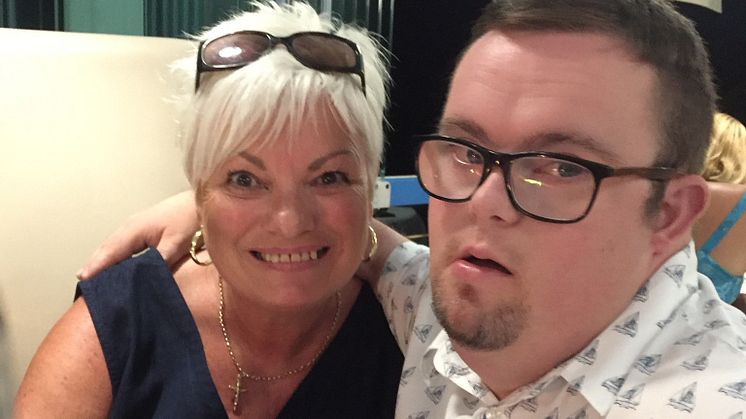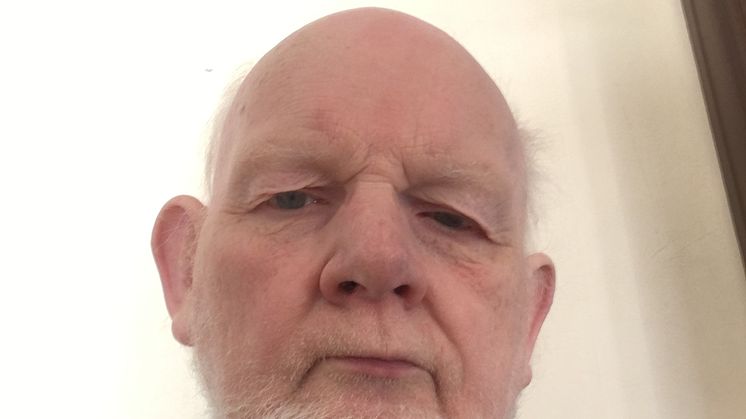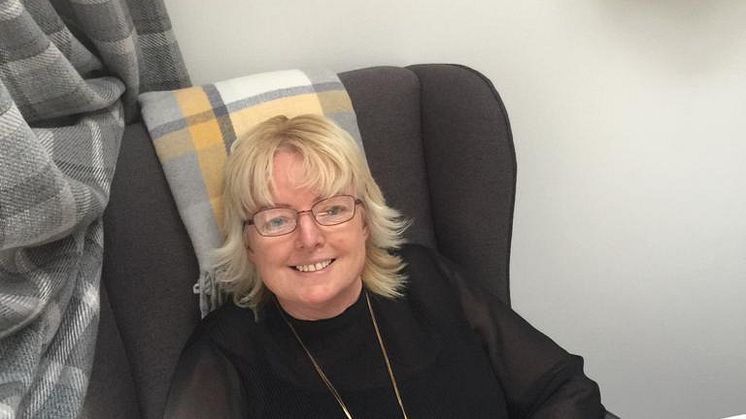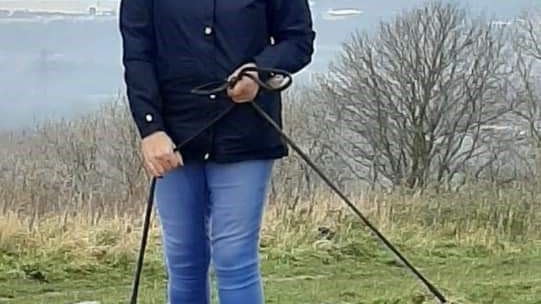
Press release -
Leading stroke charity funds first study into long-term impact of Covid-19 on stroke
The Stroke Association is funding the world’s first study to determine the long-term impact of Covid-19 on stroke survivors. Since the start of the Covid-19 pandemic there have been widespread reports of adults with the virus also having strokes [1]. The charity announces this new study today, amid concerns that the virus may be causing more severe strokes in patients [2] whom doctors are struggling to treat.
It is thought that the virus could be increasing the chance of blood clots forming in the brain and blocking blood flow [3]. The Stroke Association is funding this vital research to investigate the difference the virus could make to stroke recoveries, which are already at risk due to disruption to stroke services caused by the pandemic [4].
The study will establish which differences in patients with and without the virus may influence their needs for treatment and care, including how to avoid the risk of having further strokes.
Researchers at University College London Hospitals NHS Foundation Trust (UCLH) will follow up to 4,000 stroke survivors, with and without Covid-19 from across 13 emergency stroke units. Stroke recovery, rehabilitation and health will be tracked for up to 18 months after their stroke. Researchers will collect and assess comprehensive, specialist medical information from stroke patients, including brain scans, blood samples and measures of disability. The findings will help to understand how Covid-19 impacts stroke recovery and which treatments might best support survivors’ recoveries.
Dr Richard Perry, lead researcher at UCLH, said: “Research that compares stroke in patients with and without Covid-19 is essential to understand if Covid-19 results in more severe strokes, where survivors will need more support to recover from its devastating effects. While redeployed to stroke wards at the start of the pandemic, I would see patients admitted with unusual strokes, who would then go on to have a positive Covid-19 test.
“The findings from this study will inform decisions about the most effective treatment and the rehabilitation needs of this group of patients, including prevention of recurrent stroke. We already know that from the moment a person has a stroke or mini-stroke they are at substantial increased risk of further strokes [5].
“We’ve come a long way since the start of the pandemic. I’m incredibly proud of stroke doctors and researchers throughout the UK who generously gave their time to contribute to the early stages of our study on the impact of Covid-19 on stroke, when we had no resources and were entirely dependent on their goodwill. This much-needed funding means we can continue the urgent work.”
Stroke is a sudden brain attack, stroke strikes every five minutes, and there are more than 1.2 million stroke survivors living in the UK. However, this is set to rise; it is predicted that the number of stroke survivors aged 45 and over could rise to 1.4 million in 2025, and 2.1 million in 2035 [6].
Michael Pitcher, 28 from Scholes, Wigan who has Down’s Syndrome, contracted Covid-19 and then had a stroke which robbed him of his mobility and the use of his left side.
His mother Bev Beckett, 62, said: “Before he had the virus, Michael was a fully functioning young man, albeit it with limited speech. He was a member of a special needs football team and did everything himself.”
In November 2020, Michael had been feeling unwell for a couple of days, so Bev took him for a Covid-19 test which was positive. However that evening she called an ambulance after Michel’s breathing became very shallow and his lips turned blue. He was taken straight to A&E in Wigan.
Bev said: “Doctors told us he had Covid pneumonia which was in both lungs. After a week of having his oxygen levels monitored on the Covid ward, I was called by a physiotherapist at the hospital who asked if Michael usually had weakness on his left side. A subsequent CT scan showed he’d had a massive frontal lobe stroke.
“Michael recovered from Covid and was still on oxygen but transferred to the stroke ward. At this point, his left eye was closed, he had no movement on his left side and he was very weak. He was being tube fed and still on oxygen. Eventually he was given thickened liquids and thankfully within two weeks he was eating and drinking normally.”
Michael was discharged on 6th January, and now has no use of his left side while his stroke also affected.
Bev added: “Doctors told me they suspect that Michael’s stroke was caused by Covid-19. As well as his mobility, the stroke has also left him very emotional and he cries at the smallest thing. Because of his Down’s Syndrome, Michael didn’t understand that physiotherapy would benefit him so he wouldn’t cooperate. A learning disability physiotherapist will work with him when he’s ready to go back to the day centre he usually attends.
“I’m currently desperate to be moved from our current flat as there is no room for the hoists and equipment that Michael desperately needs. He is having to share a bedroom with me.”
Dr Rubina Ahmed, Research Director at the Stroke Association, said: “Stroke is a leading cause of adult disability in the UK and the second biggest killer in the world. It’s extremely concerning that we’re seeing strokes happening in ways we have not seen before. This research is absolutely critical in understanding and treating stroke after Covid-19, to help reduce the devastating effects and ultimately improve lives. Covid-19 is here to stay, so it’s vital we can prevent and treat strokes linked with the virus.
“The pandemic has shattered our fundraised income and is threatening research that drives life-changing breakthroughs in stroke care. As a result of the pandemic, we have had to halve our budget for stroke research. Research improves treatment and care for people affected by stroke so they can live their best lives possible, and that’s why stroke research is worth saving. Now more than ever, we need the public’s support. If you can, please help us find a way through the research funding crisis by donating today, so that we can fund more life-saving research.”
In February, the Stroke Association announced the world’s largest study to confirm if Covid-19 increases the risk of stroke and by how much. Together with the new research announced today, the two studies will help doctors to prevent and best treat Covid-19 strokes in the people who are most at risk.
Over the past 30 years the Stroke Association has played a crucial role in supporting stroke research in the UK. Research helps stroke survivors rebuild their lives, but the pandemic has hit research hard. By saving stroke research, more stroke survivors can live life to the full.
Find out how stroke research helps rebuild lives at stroke.org.uk/rebuildinglives or to donate, please visit: stroke.org.uk/saveresearch
Topics
Categories
- Stroke strikes every five minutes in the UK and it changes lives in an instant.
- The Stroke Association is a charity working across the UK to support people to rebuild their lives after stroke. We believe that everyone deserves to live the best life they can after stroke. From local support services and groups, to online information and support, anyone affected by stroke can visit stroke.org.uk or call our dedicated Stroke Helpline on 0303 3033 100 to find out about support available locally.
- Our specialist support, research and campaigning are only possible with the courage and determination of the stroke community and the generosity of our supporters. With more donations and support, we can help rebuild even more lives.
- You can follow us on Twitter, Facebook and Instagram.















